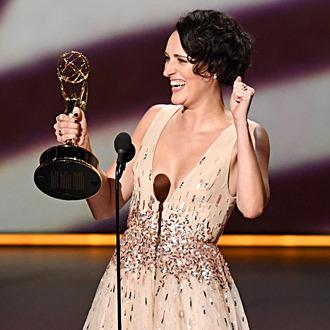On Sunday, September 22, it was television’s biggest night. This year held at the Microsoft Theatre in Los Angeles, CA 2019’s Primetime Emmy Awards was nothing short of a great night of celebration, some classic comedy and a bit of needed drama.
This year, the show took place without a host, reminiscent of the 2019 Academy Awards which took the same ‘no-host’ route. However, a host was not the only thing the show lacked. Yet again, despite the constant fight for and attempts to increase diversity, the Emmys reflected the lack of representation of people of color in Hollywood.
The night of the Emmys this time around was a particularly big win for British actor, writer and producer Phoebe Waller-Bridge, who swept a total of 3 awards for her remarkable work in “Fleabag.” The show itself winning a total of 4 awards including “Outstanding Comedy Series,” “Lead Actress in a Comedy Series,” “Directing for a Comedy series,” and “Writing for a Comedy series.” The 30 minute British comedy, available on Amazon Prime and broadcasted on BBC America, delivers its audience with a rather everyday yet hard-to-describe humor that made fans fall in love with it even more so in the second season. The ridiculously relatable combination of humor, drama and sudden mishaps in life is a visual testament to Waller-Bridge’s genius and this year received its much deserved attention and praise, to say the least.
However, the British invasion at the Emmys only began with Waller-Bridge. With numerous acts and individuals winning from the United Kingdom being a quite noticeable aspect of the show this year, many were made to question if the people across the Atlantic simply write better or whether they are producing “better” and more timely television. The conspicuous victory was even highlighted by Jesse Armstrong who won for his writing on the Murdoch family based thriller “Succession” and stated “Quite a lot of British winners … Maybe too many” including making a political reference to current U.S immigration laws “Maybe you should have a think about those immigration restrictions.”
Among the British rooted winners there was John Oliver for “Last Week Tonight,” the impeccably written and shot limited series “Chernobyl,” Jodie Comer (Killing Eve) for Outstanding Actress in a drama series, “Black Mirror: Bandersnatch,” and Ben Winshaw for Outstanding Supporting Actor in a limited series for “A Very English Scandal”.
Other than the evident overtaking of the night by the British, another theme, this one rather saddening, that was noticeable at this year’s Emmys was the lack of diversity. Except for the history making wins by Jerrell Jerome (When They See Us) and Billy Porter (Pose), the night quite clearly put to display that despite the push for diversity in Hollywood, the industry still has a long way to go.
Even though a number of people of color (POC) were nominated for awards within the acting field, — unlike the Academy Awards in 2016 — the blatant lack of representation across the fields of writing, directing, editing and producing was even more so apparent as the majority white male behind -the-scenes winners of shows including “RuPaul’s Drag Race” even though led by a black, gay drag queen, and “Game Of Thrones” gathered on stage to receive their prizes.
So, although many worthy individuals and productions were given their due credit and appraisal, by the end of the show, the most glaring fact was the large gap in diversity that Hollywood needs to advocate harder for to fill up. Although the industry has been making sincere and public efforts to better diversify the physical portrayal of actors onscreen — be it film or television — in current times, wider perspectives and approaches are required. For cultural consumers of today, the authenticity and ethnicity of those we see on screen is equally as important those who serve the media, off screen. And for Hollywood, it is high time to begin responding to demand for such action in an industry, like many others, still dominated by the white cisgender men at its core.




